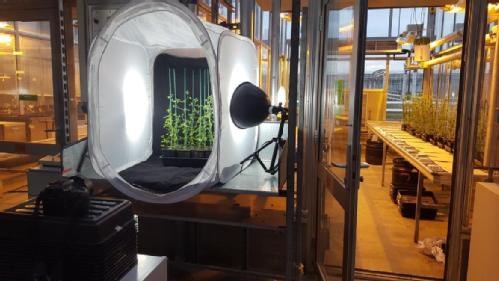

Researchers Plant Bacteria Organic Fertilizer
Use of chemical based fertilizers can become a thing of the past as friendly bacteria would be enough to offer strong crop growth and grain production. A study done by the researchers from the Universities of Warwick and Justus Liebig in Germany about the symbiotic relation between a plant and the bacteria in the soil has come up with some interesting findings. The researchers find that the natural relationship between plants and bacteria could be enhanced and the pollution caused by chemical fertilizers could be eliminated in future by perfecting the natural system.
The researchers have also found a technique to step up the nutrient uptake and growth of a plant. Fertilizers are a cause of pollution in soil, water and air and they must be reduced for sustainable development. The research has been funded by the Biotechnology and Biological Sciences Research Council (BBSRC).
The researchers investigated the efficiency of plant-bacteria relationships. This is called symbiosis or nodulation. They also focused on the impact on other soil microbes. Legumes have symbiotic relationships with rhizobia bacteria. Rhizobia helps fix nitrogen from the air and provide nutrients to the plants. This is the reason why, in crop rotation or mixed farming, the legumes are given importance to naturally enhance the fertility of the soil world over.
This interaction enables legumes to acquire soil nutrients, promoting growth and stress resilience without heavy reliance on chemical fertilizers. However, the outcome of this symbiotic efficiency depends on the bacteria’s ability to fix nitrogen and the soil type.
The Research
Researchers found that the bacteria can be strong biofertilizers as it all depends on the ability of bacteria to fix nitrogen in a particular soil. Various strains of nitrogen-fixing bacteria across different soil types were put with legumes and plants’ responses were measured along with mineral content. They recorded the changes in bacterial and fungal communities in soil, root surface, and inside the root. Hence, they could reach the efficiency level of the bacteria and their symbiotic relation with legumes.
Dr. Beatriz Lagunas, co-author of the study, said that the symbiosis with various kinds of bacteria species can change the entire root microbiome. Professor Miriam Gifford held that the study can help raise the level of production of essential legume crops including beans and peas.
The researchers held that they will continue the study further to evaluate the impact of microbes on different plant species. This, they said, is necessary to evaluate a plant’s growth and stress resilience. The researchers will collaborate with the private sector to scale up biofertilizers and bring down the use of chemical fertilizers that would protect the natural environment and step-up natural fertility of the soil.
Houston headquartered Syzygy Plasmonics has announced the beginning of Front-End Engineering and Design (FEED) with…
State owned THDC India Limited (THDCIL) has announced the successful commencement of COD process of…
The Uttar Pradesh government is preparing to launch the Uttar Pradesh Sustainable Aviation Fuel (SAF)…
India’s cooperative sugar industry is urging the government to revise ethanol procurement prices and extend…
The Indian Biogas Association (IBA) has announced a key step taken to boost biofuels sector…
In a key development that would bolster the development of green hydrogen in the North…